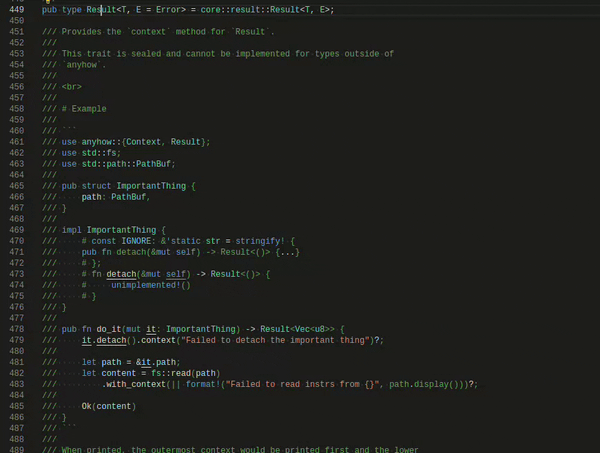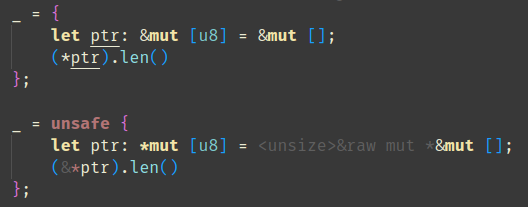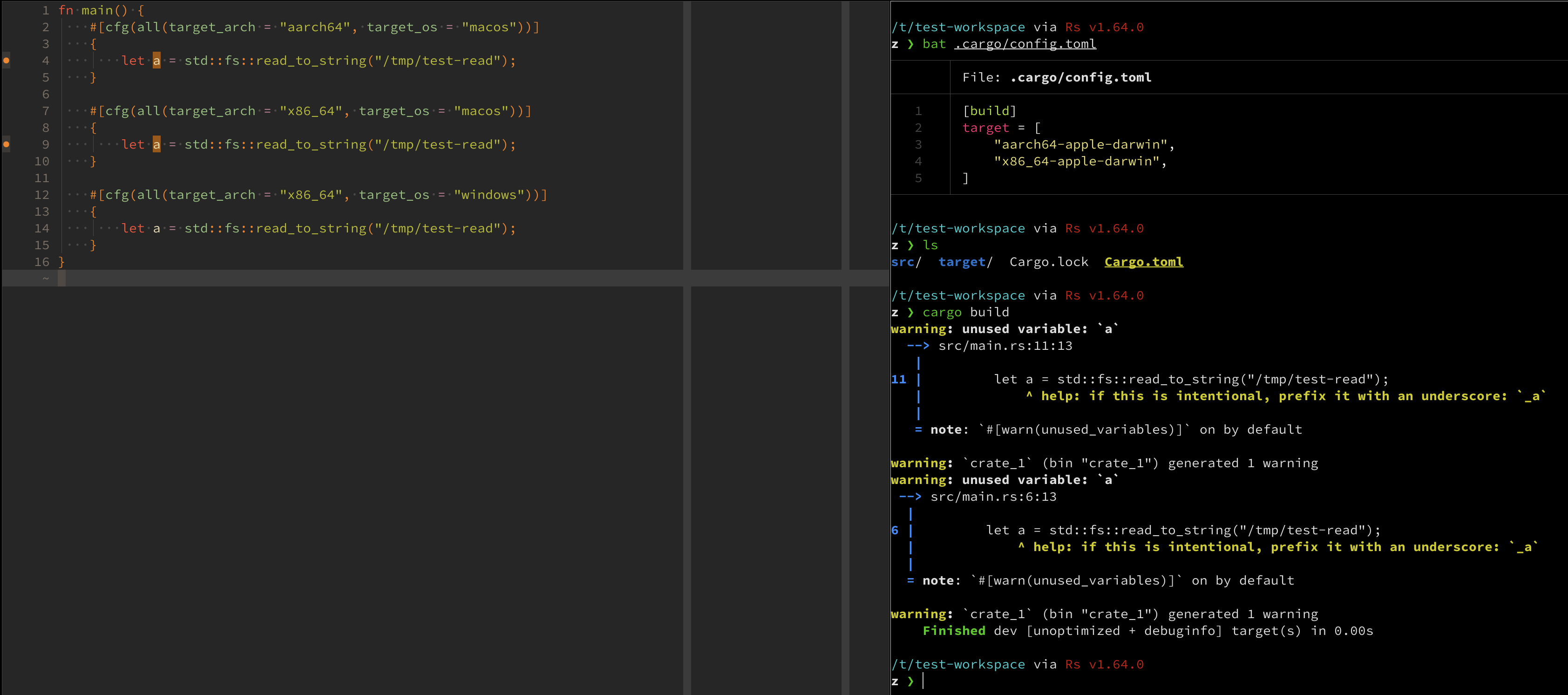add openDocs command to context menu in VS Code extension
This adds the `openDocs` command to the VS Code context menu. I believe there are probably many user who are unaware of this command existing in the rust analyzer extension, and that this should enhance the discoverability of the command. Additionally, even if people are aware of this capability, it's helpful to have this in the context menu anyway; for example, one might forget the name of the command, or the keybinding they have assigned to it. I think that opening docs is a common enough action to warrant the extra line added to the context menu.
This makes a few other small changes as well. There are two minor style changes to increase style consistency. First, it changes the titles of the two commands that the rust analyzer extension will contribute to the context menu to title case. All standard VS Code commands that appear in the context menu are in title case. Second, it shortens the title of the `openDocs` command from `Open docs under cursor` to `Open Docs`. The implicit assumption in the standard VS Code context menu command titles is that the action applies to the symbol under the cursor: `Go to Definition`, `Find All References`, etc. Note that since these are changes to the command titles, rather than the command names themselves, these changes will not break any users' existing keybindings for these commands.
Second, this adds further restrictions to the `where` clauses of the two commands that the rust analyzer extension will contribute to the context menu, so that the two commands will appear in the context menu only when in a Rust project **and** within a Rust file. Say you have a Python or bash script inside your Rust project. Having these commands appear in the context menu when you right click a symbol in such a non-Rust file is extraneous and potentially confusing.

minor: Explicitly disable the rust-analyzer extension in untrusted workspaces
This is the default, but its always better to be explicit here + we can add a small note as to why.
Use ANSI control characters to display text decorations matching the
VScode terminal theme, and strip them out when providing text content
for rustc diagnostics.
This adds the small `anser` library to parse the control codes, and it
also supports HTML output so it should be fairly easy to switch to a
rendered HTML/webview implementation if desired.
Rename `checkOnSave` settings to `check`
Now that flychecks can be triggered without saving the setting name doesn't make that much sense anymore. This PR renames it to just `check`, but keeps `checkOnSave` as the enabling setting.
feat: add the ability to limit the number of threads launched by `main_loop`
## Motivation
`main_loop` defaults to launch as many threads as cpus in one machine. When developing on multi-core remote servers on multiple projects, this will lead to thousands of idle threads being created. This is very annoying when one wants check whether his program under developing is running correctly via `htop`.
<img width="756" alt="image" src="https://user-images.githubusercontent.com/41831480/206656419-fa3f0dd2-e554-4f36-be1b-29d54739930c.png">
## Contribution
This patch introduce the configuration option `rust-analyzer.numThreads` to set the desired thread number used by the main thread pool.
This should have no effects on the performance as not all threads are actually used.
<img width="1325" alt="image" src="https://user-images.githubusercontent.com/41831480/206656834-fe625c4c-b993-4771-8a82-7427c297fd41.png">
## Demonstration
The following is a snippet of `lunarvim` configuration using my own build.
```lua
vim.list_extend(lvim.lsp.automatic_configuration.skipped_servers, { "rust_analyzer" })
require("lvim.lsp.manager").setup("rust_analyzer", {
cmd = { "env", "RA_LOG=debug", "RA_LOG_FILE=/tmp/ra-test.log",
"/home/jlhu/Projects/rust-analyzer/target/debug/rust-analyzer",
},
init_options = {
numThreads = 4,
},
settings = {
cachePriming = {
numThreads = 8,
},
},
})
```
## Limitations
The `numThreads` can only be modified via `initializationOptions` in early initialisation because everything has to wait until the thread pool starts including the dynamic settings modification support.
The `numThreads` also does not reflect the end results of how many threads is actually created, because I have not yet tracked down everything that spawns threads.
Use diagnostic code as link to full message
fixes#13823 by adding a vscode setting that will keeping the existing diagnostic code and use it as a link to the full compiler error message.
While I was there I also fixed `index` to fallback to `rendered.length` to make the previewRustcOutput feature work.
feat: Add an option to hide adjustment hints outside of `unsafe` blocks and functions
As the title suggests: this PR adds an option (namely `rust-analyzer.inlayHints.expressionAdjustmentHints.hideOutsideUnsafe`) that allows to hide adjustment hints outside of `unsafe` blocks and functions:

Requested by `@BoxyUwU` <3
Support multiple targets for checkOnSave (in conjunction with cargo 1.64.0+)
This PR adds support for the ability to pass multiple `--target` flags when using
`cargo` 1.64.0+.
## Questions
I needed to change the type of two configurations options, but I did not plurialize the names to
avoid too much churn, should I ?
## Zulip thread
https://rust-lang.zulipchat.com/#narrow/stream/185405-t-compiler.2Frust-analyzer/topic/Issue.2013282.20.28supporting.20multiple.20targets.20with.201.2E64.2B.29
## Example
To see it working, on a macOS machine:
```sh
$ cd /tmp
$ cargo new cargo-multiple-targets-support-ra-test
$ cd !$
$ mkdir .cargo
$ echo '
[build]
target = [
"aarch64-apple-darwin",
"x86_64-apple-darwin",
]
' > .cargo/config.toml
$ echo '
fn main() {
#[cfg(all(target_arch = "aarch64", target_os = "macos"))]
{
let a = std::fs::read_to_string("/tmp/test-read");
}
#[cfg(all(target_arch = "x86_64", target_os = "macos"))]
{
let a = std::fs::read_to_string("/tmp/test-read");
}
#[cfg(all(target_arch = "x86_64", target_os = "windows"))]
{
let a = std::fs::read_to_string("/tmp/test-read");
}
}
' > src/main.rs
# launch your favorite editor with the version of RA from this PR
#
# You should see warnings under the first two `let a = ...` but not the third
```
## Screen

Helps with #13282
feat: add config for inserting must_use in `generate_enum_as_method`
Should fix#13312
Didn't add a test because I was not sure on how to add test for a specific configuration option, tried to look for the usages for other `AssistConfig` variants but couldn't find any in `tests`. If there is a way to test this, do point me towards it.
I tried to extract the formatting string as a common `template_string` and only have if-else for that, but it didn't compile :(
Also it seems these tests are failing:
```
test config::tests::generate_config_documentation ... FAILED
test config::tests::generate_package_json_config ... FAILED
```
Can you also point me to how to correct these 😅 ( I guess there is some command to automatically generate these? )